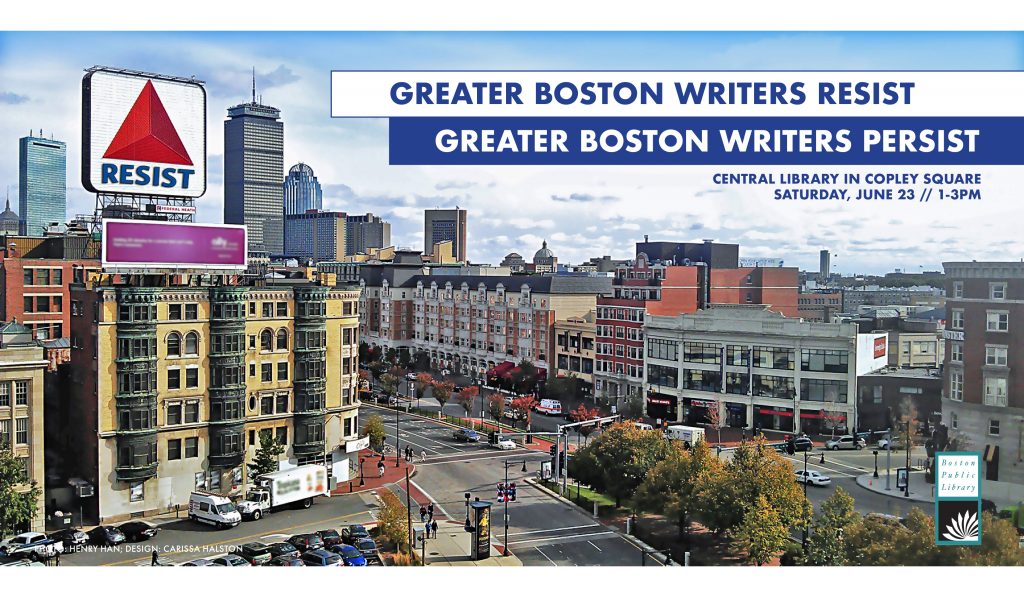Last January, writers across fifty cities and three continents gathered to re-affirm their support of freedom of expression. Since then, writers in various fields have faced increasingly hostile threats.
Author and activist Ijeoma Oluo received death threats on Twitter last August after making a joke about leaving a rural Cracker Barrel without enduring racial violence. She reposted the death threats on Facebook. Facebook shut down her account.
Journalist Dan Heyman was arrested in Virginia last May for repeatedly asking then-Health and Human Services Secretary, Tom Price, whether domestic violence would be considered a preexisting condition under the Republican health bill that had just cleared the House. Heyman was charged with “willful disruption of state government processes.” Tom Price never answered Heyman’s question.
And, this past winter, after the Department of Health and Human Services released a list of words CDC employees should avoid in order to increase their chances of getting funding—a list that included words like “transgender,” “vulnerable,” and “diversity”—author and expert on autocratic regimes Sarah Kendzior wrote:
“Yes, of course [the CDC word list is] a sign of authoritarianism. But the worst signs are those that don’t announce themselves. Look for more nefarious paths to censorship: partisan firings, funding cuts, prohibitions on public documents.”
In this era, as we continue to face institutionalized racism, a reversal of free speech and free press, police brutality, the undermining of facts and science, gun violence, widespread deportation, LGBTQ discrimination, religious intolerance, domestic violence, mass incarceration, misogyny, and a range of other actions not so easily described, it sometimes seems too much to catalog or write about.
Yet, authors who write about political and politicized issues not only keep readers informed. Their work provides us with methods to regroup and heal. And authors who’ve written at length about the subjects above take stances on the page to make readers feel whole in a world that sometimes threatens to break us.
Although it seems particularly difficult right now, we’re lucky to have a wealth of writers in greater Boston to learn from, authors who inspire readers to engage with the realities of our times, and whose work paves the way for their fellow writers to tackle society’s threats.
In the spirit of celebrating and attesting our ongoing commitment to freedom of expression, we’re bringing together ten authors and two student writers to read from their work and discuss how they’ve used writing as a method of persistent resistance. From self-expression to education to community outreach, their work is a testament to the strength of our broader literary community.

To that end, we hope you’ll join us on Saturday, June 23, 1-3pm, at Boston Public Library’s Central Library in Copley Square (700 Boylston St) when the following authors and writers will lead the next Greater Boston Writers Resist event:
Sam Cha
Jennifer De Leon
JoeAnn Hart
Krysten Hill
Simone John
Alexandria Marzano-Lesnevich
Timothy Patrick McCarthy
Kim McLarin
Alex Myers
Edwin Padilla
Khury Petersen-Smith
Angie Ramos
The event will be hosted by Carissa Halston. Books by the authors will be for sale at the BPL on the day of the reading, courtesy of Brookline Booksmith. The event is free and open to the public. RSVP on Facebook
Greater Boston Writers Resist/Persist is co-sponsored by Aforementioned Productions, PEN America, Boston Public Library, Boston Cultural Council, Brookline Booksmith, The Critical Flame, AGNI, Arrowsmith Press, Black Ocean, The Boston Book Festival, The Boston Poet Laureate Program, The Common, CONSEQUENCE, Grub Street, Harvard Review, Louder than a Bomb, MassLEAP, The Massachusetts Review, MassMouth, The Mayor’s Office for Immigrant Advancement, New England Foundation for the Arts, Ploughshares, The Poets’ Theatre, Post Road, Salamander, StoriesLive, The Writers’ Room of Boston, The William Joiner Institute for the Study of War and Social Consequences, and The Woodberry Poetry Room.
Writers Resist is a national network of writers driven to #WriteOurDemocracy by defending the ideals of a free, just, and compassionate democratic society. #WritersResist
